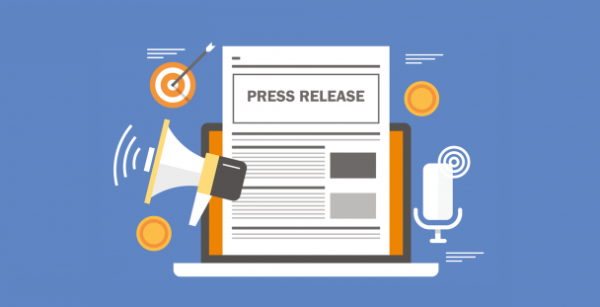Penalty looms for unpaid Self Assessment tax bills
LITRG is warning taxpayers who have not yet paid or agreed a payment plan with HMRC for their 2020/21 Self Assessment tax liability that they only have a week left to avoid a penalty. If any of the 2020/21 liability remains outstanding on 2 April 2022, taxpayers will be charged a penalty of five per cent of the amount which was outstanding on 3 March 2022.1

Some taxpayers may not yet have filed their 2020/21 Self Assessment tax return and have already received a £100 late-filing penalty. LITRG urges these taxpayers to:
- prepare and submit their tax return online as soon as possible;2 and
- pay any remaining 2020/21 liability to HMRC before 2 April 2022 or arrange a payment plan.
Delaying action until after Friday next week means that HMRC will charge a late-payment penalty, if there is any tax owing, on top of any late-filing penalty already issued.
Tom Henderson, Technical Officer for LITRG, said:
“If you have not yet finalised your Self Assessment tax affairs for 2020/21, including submitting your tax return and settling any payment due, you should do so before 2 April 2022 to avoid potentially triggering a late-payment penalty. This penalty will not be levied if the amount owing is included in a time-to-pay arrangement, but this needs to be arranged before 2 April 2022 and the tax return must be submitted first."
Setting up a time-to-pay arrangement is straightforward and can be done online. It protects the taxpayer from late-payment penalties, but not late payment interest, which is currently charged at three per cent per annum, increasing to 3.25 per cent from 5 April.3
Tom Henderson said:
“If you cannot submit your tax return because HMRC have not yet issued a Unique Taxpayer Reference (UTR), then the usual payment deadlines still apply if you were late notifying HMRC of your liability to tax.4 Normally, it is necessary to provide the UTR in the payment reference when making any payment to HMRC. However, you may be in time to avoid triggering the late-payment penalty by making a payment to HMRC by cheque, if it would clear HMRC’s account before 2 April 2022.5
“If HMRC charge a late payment penalty and you have a reasonable excuse for not having made the payment, then you can appeal the penalty. However, claiming insufficient funds to pay is not treated as a reasonable excuse, unless it is attributable to events outside your control.”6
Notes for editors
1. HMRC’s announcement is at https://www.gov.uk/government/news/hmrc-gives-self-assessment-taxpayers-more-time-to-ease-covid-19-pressures.
Normally, the five per cent late-payment penalty applies to any 2020/21 income tax, Class 2 and 4 National Insurance contributions, capital gains tax and student loan repayments which were due for payment by 31 January 2022 but not included in a time-to-pay arrangement and still outstanding on 3 March 2022. This year, taxpayers have been given an additional 30 days to pay their Self Assessment tax bill or agree a time-to-pay arrangement before this penalty is charged. However, the statutory penalty is charged by reference to the amount outstanding on 3 March 2022, not 2 April 2022.
The late payment penalty does not apply to the first payment on account for 2021/22, which was also due on 31 January 2022. Interest may, however, be due on late-paid payments on account.
For more information on late-payment penalties, please see https://www.litrg.org.uk/tax-guides/tax-basics/enquiries-penalties-appeals-complaints-and-debt/tax-penalties#toc-late-payment-penalties.
2. If the taxpayer was issued a notice to file their 2020/21 tax return on or before 31 October 2021, then an earlier deadline applies where a paper tax return is filed. In these cases, it is important that tax returns which are still outstanding are submitted electronically, otherwise additional late-filing penalties may be triggered. See https://www.litrg.org.uk/tax-guides/tax-basics/self-assessment-understanding-basics#toc-when-must-i-send-my-tax-return-…-.
3. For more information on time-to-pay arrangements, please see https://www.litrg.org.uk/tax-guides/tax-basics/what-if-i-cannot-pay-my-tax-bill#toc-what-is-a-time-to-pay-arrangement-.
4. The deadline to notify HMRC of a liability to tax for 2020/21 was 5 October 2021, though a number of exceptions apply. See https://www.gov.uk/hmrc-internal-manuals/enquiry-manual/em4551.
5. When sending a cheque payment to HMRC, taxpayers should send it to HMRC, Direct, BX5 5BD. On the back of the cheque, taxpayers should write their full name, address, telephone number, National Insurance number, the type of tax and the period to which it relates. A payslip can be generated at http://www.hmrc.gov.uk/gds/payinghmrc/payslip-sa1.htm. See https://www.att.org.uk/self-assessment-delays-utrs-31-january-2022-deadline for more information.
6. For more information on reasonable excuse, see https://www.litrg.org.uk/tax-guides/tax-basics/enquiries-penalties-appeals-complaints-and-debt/tax-penalties#toc-what-is-a-reasonable-excuse-.
7. Low Incomes Tax Reform Group
The LITRG is an initiative of the Chartered Institute of Taxation (CIOT) to give a voice to the unrepresented. Since 1998 LITRG has been working to improve the policy and processes of the tax, tax credits and associated welfare systems for the benefit of those on low incomes.
The CIOT is the leading professional body in the United Kingdom concerned solely with taxation. The CIOT is an educational charity, promoting education and study of the administration and practice of taxation. One of our key aims is to work for a better, more efficient, tax system for all affected by it – taxpayers, their advisers and the authorities. The CIOT’s work covers all aspects of taxation, including direct and indirect taxes and duties. The CIOT’s 19,000 members have the practising title of ‘Chartered Tax Adviser’ and the designatory letters ‘CTA’, to represent the leading tax qualification.
Contact Hamant Verma, External Relations Officer, 0207 340 2702 [email protected]
